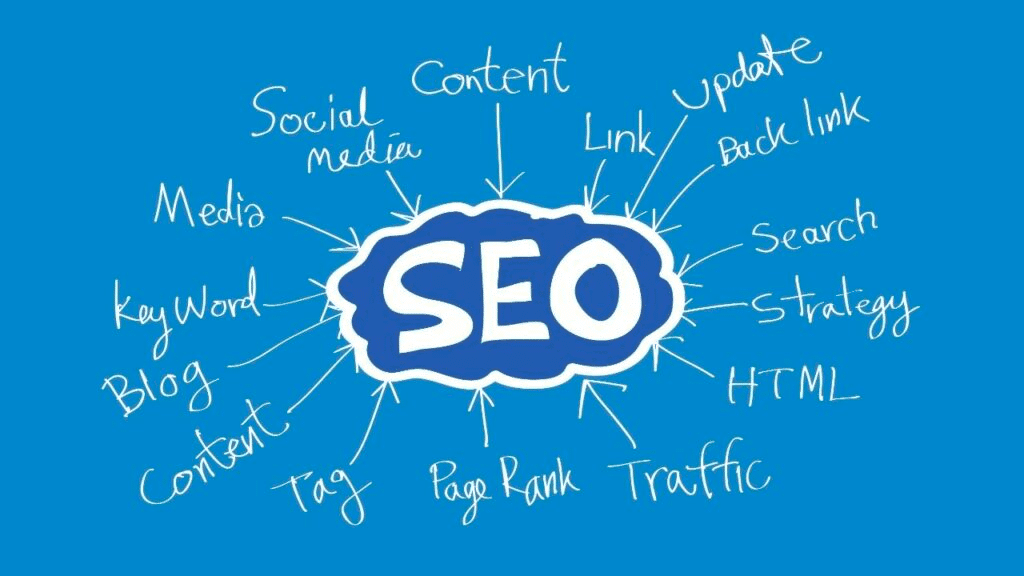Conducting your business online is a must in the world that we live in today. Anyone with an interest in a product, service, or organization will immediately head to everyone’s number one resource–Google. The first thing that people are going to do when they’re looking for a product they’re remotely interested in is to research it on a search engine like Google. People type what they want to buy into the search engine and whatever business pops up first, they most likely will click on and go on to purchase the product from that business’s website.
But, how exactly does that work? How does a search engine immediately process the words, no matter how ambiguous, filter out all other information, refine your search, and then come up with its select results within less than a second (if your internet is running smoothly, of course)?
The answer is Search Engine Optimization or SEO. Strong SEO is what filters a business to the top of a search engine results page (SERP) over other businesses. When used correctly, SEO improves navigation to your business’s website, driving the traffic, exposure, and revenue you want.
What exactly is SEO?
SEO stands for “search engine optimization” and your SEO strategy should include all forms of content on your website (written, images, videos). What SEO does is improve the visibility and ranking of your site on various search engine results pages by sifting through every webpage on the internet, collecting information, and storing it away. So when people head to the internet to search for specific things, they type in the words that closely describe that product or idea, which is then used by the search algorithms to compare with the SEO information stored away. It refines a user’s search terms in an instant while the SEO algorithm uses several aspects to filter the highest ranking websites and articles to load first.
Successfully adopting proper SEO allows your website to rank higher and improves the user experience. By strategically placing SEO-driven keyphrases into your website in the form of the content it produces (like articles), you end up improving traffic to your website. The algorithm analyzes your content and based on that analysis, your content and website turn up on the first page of “results.”
In layman’s terms, SEO strategies drive visibility and exposure to the content you are creating. For event businesses, SEO-driven content will drive the traffic and exposure that you want in order to produce a successful event.
Why should you even use SEO?
Being SEO relevant is exceedingly important to an online business, or any business in general if it wants to succeed and flourish. If you’re not SEO relevant, you’ll end up missing out on the free and easy exposure that online content marketing can do for your event business.
SEO tactics improve brand exposure and the content you produce. You are ultimately trying to reach your targeted audience. In marketing, you must always consider the likes, desires, and goals of your audience. SEO-driven content will allow you to think in the way your audience thinks and produce specific content marketed towards them. Additionally, SEO data gives us real-time information on what drives in traffic for a particular subject, product, or business. With this insight, businesses are able to clue in on what is valued by their audience and improve their marketing and branding strategy.
It’s also an easy way to see what works and what doesn’t when it comes to content marketing. SEO data can measure what needs to be improved with quantitative observations. Taking a quick look at this data will allow your business to better develop content that will enter the algorithm.
SEO Best Practices
To get you started, here are three, core SEO best practices to keep in mind when creating online content. Using these easy tips will ensure that your website ranks higher on SERPS which will inevitably drive in traffic.
- Clue in on keywords! This can’t be stressed enough. Dispersing an appropriate amount of keywords/keyphrases throughout your content immediately improves your SEO. Websites like neilpatel.com, ubersuggest.com, and Google Keyword Planner have tools for you to do your keyword research so you can find out what words that will do well SEO-wise and use them in the content you create. For best results, use keywords that aren’t too broad, otherwise you’ll end up so far down in the search results you’ll never get seen. Prioritize keywords that you have a chance of ranking for and consider keywords that have little competition.
- Think about the structure of your content. Is it an article, a newsletter, or a short ad? These all matter and are completely different forms of content. Tinker with your content in order to optimize its performance in whatever form its created for
- Keep in mind that you’re delivering a particular experience to your audience. Be creative, clear, and concise. You want to think about what exactly is the goal of the content you’re creating and how you want your targeted audience to feel or react to it. Doing this makes your content relatable and visible to your audience
Creating SEO-driven content produces results, and these are just a few reasons you should adopt it into your event business. Gaining visibility online is difficult but when you disperse SEO-driven content on your website, you immediately enter the algorithm which enables you to rank higher the stronger your SEO content is.
Ticket Fairy as a ticketing and event technology platform is built to encourage and help promoters do better with their events and sales. Write SEO-friendly event descriptions to improve your online presence, and upload your event in a few simple steps to optimize ticket sales, increase awareness, and manage the door. You can also label your event images with good SEO-friendly titles before uploading them online, so alt text also turns out to be SEO-friendly!
In addition to this, Ticket Fairy also offers event writeups through TFword., created to help boost an event’s presence online. All you have to do is reach out to the support team or contact a business development manager you may be in touch with. The site has 80,000+ visits and is frequented by music lovers worldwide. Here’s an example of an event article on TFword:

Ensure to use the correct keywords, and include all important information about your event in the description. Event descriptions are also highly customizable, with multiple features that help boost your event.
For more strategies on how to sell out your next music event or music festival, download our free cheat sheet, “5 Secrets of Successful Organizers Who Sell Out Events.”



